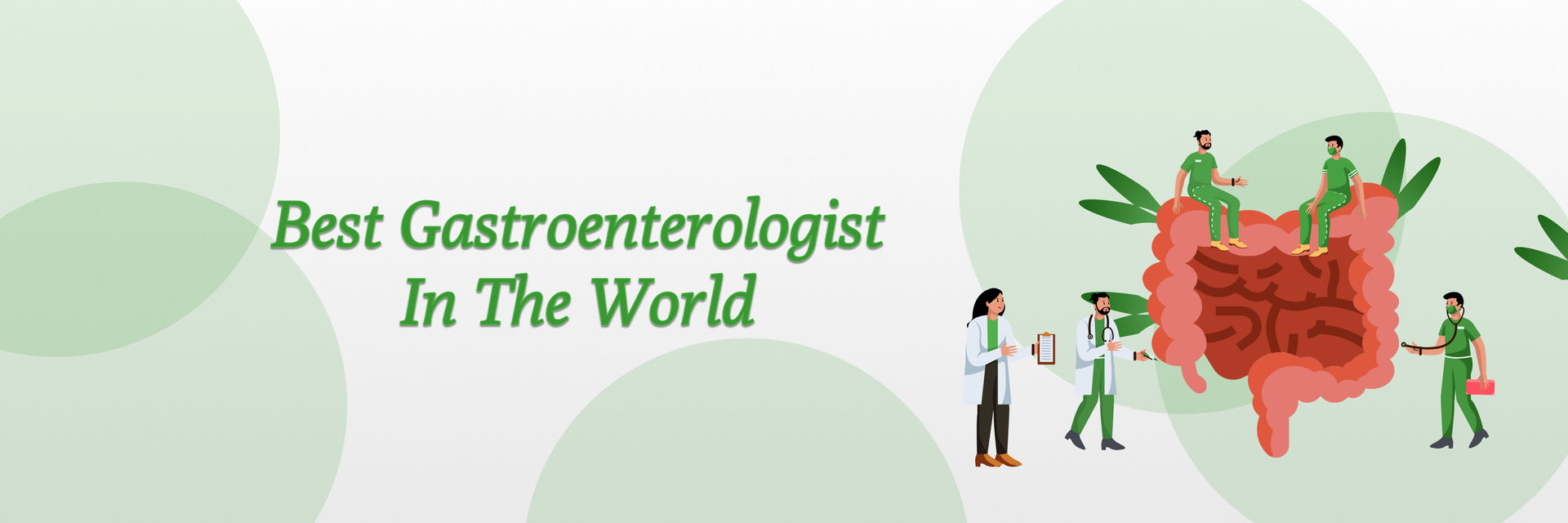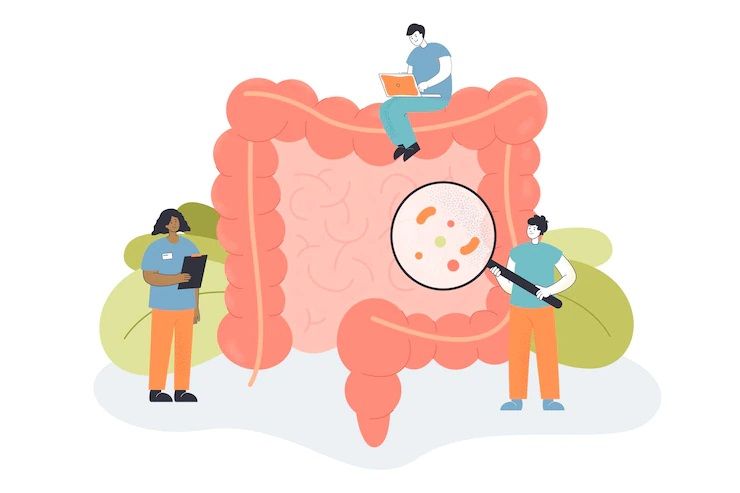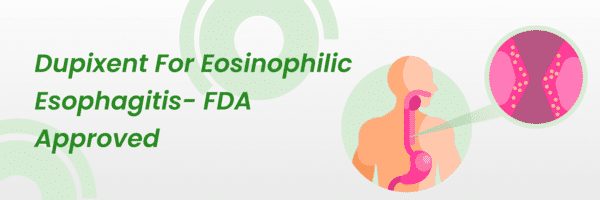Intestinal metaplasia is a condition where the cells lining the stomach or esophagus undergo a transformation, resembling those found in the intestines. This change occurs due to chronic irritation and inflammation of the stomach or esophageal lining caused by various factors such as gastric acid, bile salts, H. pylori infection, smoking, alcohol, and environmental contaminants. While intestinal metaplasia is a precancerous condition that increases the risk of developing stomach cancer, not everyone with intestinal metaplasia progresses to cancer. It is crucial to understand and identify this condition for early detection and appropriate treatment.
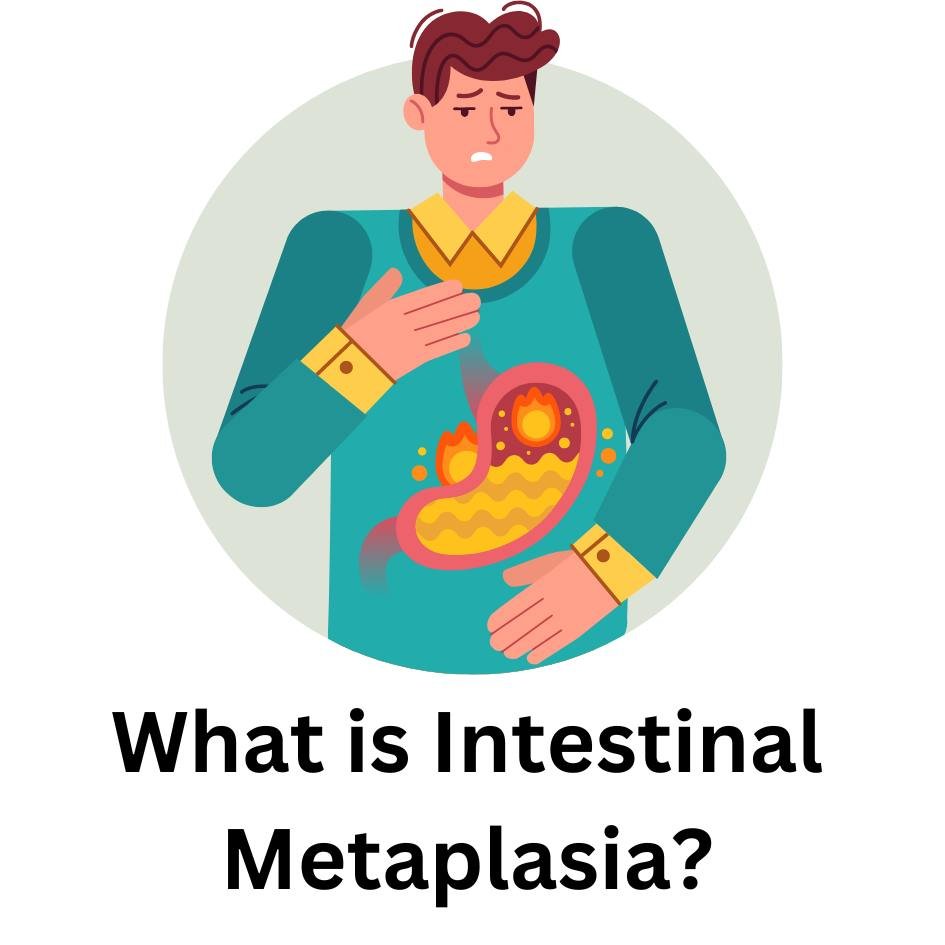
What is Intestinal Metaplasia?
Intestinal metaplasia is a disorder in which the cells lining the stomach or esophagus convert into cells resembling those found in the intestine. This transformation is often associated with chronic irritation and inflammation of the stomach lining. Although intestinal metaplasia may not always cause symptoms or be harmful, it is considered a precancerous condition due to its potential to indicate an increased risk of stomach cancer. Recognizing and diagnosing intestinal metaplasia early is essential for the timely treatment and management of related issues.
How can H. pylori infection lead to Intestinal Metaplasia?
Chronic infection with Helicobacter pylori (H. pylori) can contribute to the development of intestinal metaplasia. H. pylori is known to cause gastritis and peptic ulcers. The prolonged presence of H. pylori in the stomach leads to ongoing inflammation and damage to the stomach lining. Over time, the stomach lining may become thin (atrophic) and undergo changes resembling intestinal tissue, resulting in intestinal metaplasia. Thus, H. pylori infection plays a crucial role in the etiology of intestinal metaplasia, emphasizing the importance of early diagnosis and effective H. pylori treatment to reduce the risk of this precancerous condition.
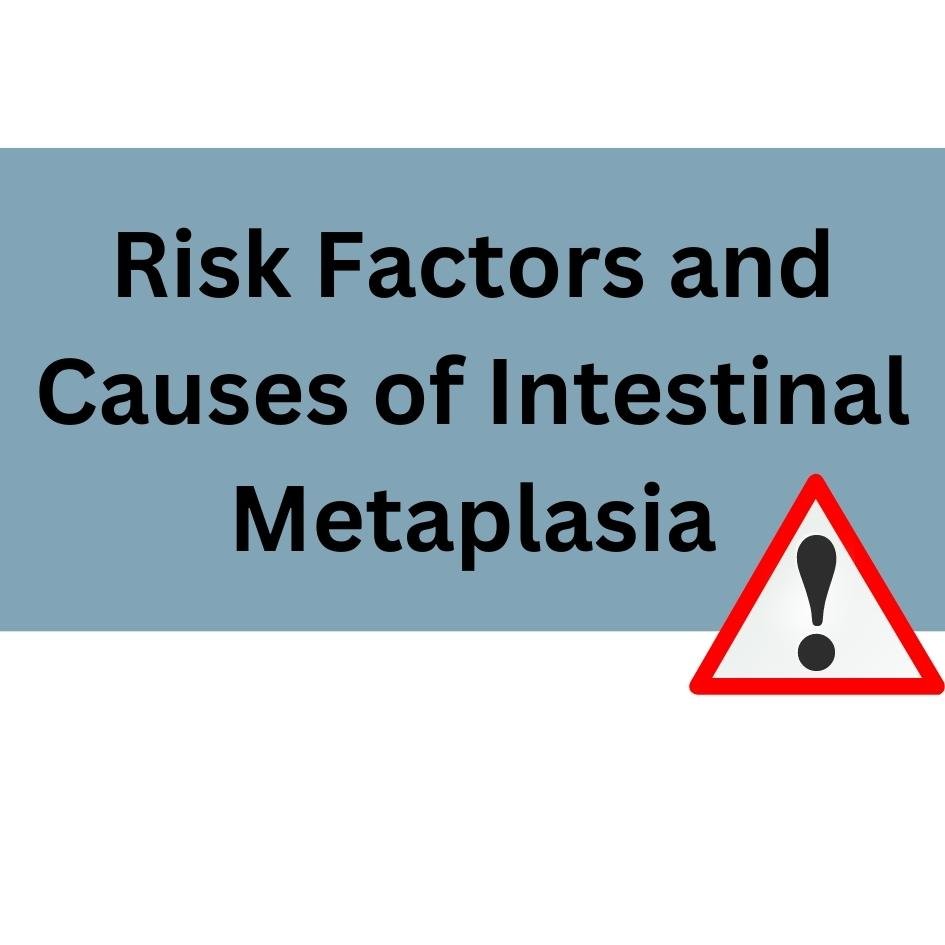
Risk Factors and Causes of Intestinal Metaplasia:
Causes: Intestinal metaplasia is caused by prolonged irritation and inflammation of the stomach or esophageal tissues. The primary culprits include gastric acid (acid reflux), bile salts (bile reflux), H. pylori infection, smoking, alcohol, environmental pollutants, and genetic predisposition.
Risk factors: Several factors increase the likelihood of developing intestinal metaplasia, including:
Intestinal Metaplasia and Smoking:
Research has shown that smokers have a higher risk of developing intestinal metaplasia. Harmful substances in tobacco smoke can damage the cells lining the stomach or esophagus, leading to abnormal changes associated with intestinal metaplasia.
Genetic Predisposition to Intestinal Metaplasia:
The risk of developing intestinal metaplasia can be influenced by genetic factors. Individuals with a family history of digestive problems may be more susceptible to intestinal metaplasia due to their genetic makeup. It is essential for those with a family history of digestive problems to be aware of these risks and take preventive measures whenever possible.
Environmental Factors Contributing to Intestinal Metaplasia:
Diet:
A diet high in processed foods or low in fruits and vegetables is associated with a higher risk of intestinal metaplasia. Conversely, a diet rich in fiber and antioxidants, obtained from fruits and vegetables, may help lower the likelihood of developing this condition.
Infections:
Infection with H. pylori is another risk factor for intestinal metaplasia. The bacterium damages the stomach lining, leading to pathological changes associated with intestinal metaplasia.
Options for Diagnosing and Treating Intestinal Metaplasia:
- Diagnosing Intestinal Metaplasia: Endoscopy is commonly used to diagnose intestinal metaplasia. During an endoscopy, a small tube with a camera is inserted through the mouth into the stomach and small intestine. This allows the doctor to visually examine the area for any abnormal tissue growth or inflammation indicating intestinal metaplasia.
- Treatment Options: Treatment plans for intestinal metaplasia vary depending on individual conditions, such as age and overall health status. Specific treatment options may include:
- H. pylori eradication: If H. pylori infection is detected, treatment with antibiotics and proton pump inhibitors (PPIs) may be prescribed to eliminate the infection and reduce the risk of intestinal metaplasia progression.
- Antioxidant therapy: Antioxidant agents such as vitamin C or E have shown potential in preventing the advancement of intestinal metaplasia when taken regularly over time. Antioxidants help neutralize harmful free radicals in the body, which can cause cell damage and contribute to the development of diseases like intestinal metaplasia.
Please consult your healthcare professional before initiating any new pharmaceutical regimen or dietary modifications to manage conditions like intestinal metaplasia effectively.
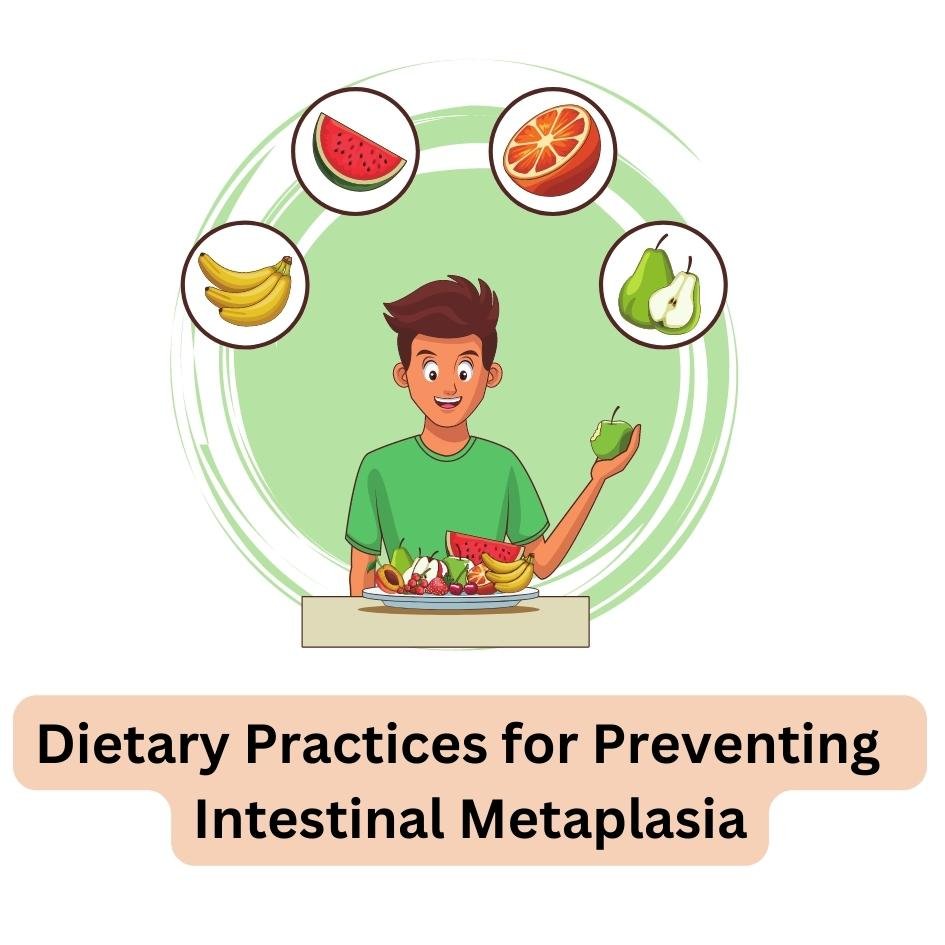
Dietary Practices for Preventing and Treating Intestinal Metaplasia:
A healthy diet plays a crucial role in managing intestinal metaplasia. Consuming a nutritious diet based on prebiotic foods may be advantageous in avoiding the emergence of intestinal metaplasia as well as aiding its management. Incorporating the following dietary practices can be beneficial in preventing and treating this condition:
- High intake of fruits and vegetables: Fruits and vegetables are rich in fiber, vitamins, minerals, and antioxidants, which promote gut health and help prevent various disorders, including intestinal metaplasia. Berries, citrus fruits, leafy greens, and bell peppers are particularly beneficial.
- Organic produce: Choosing organic produce whenever possible may provide higher nutritional value due to the absence of synthetic pesticides and fertilizers.
- Omega-3 fatty acids: Consuming foods rich in omega-3 fatty acids, such as salmon, flaxseeds, and walnuts, can help reduce inflammation, which is associated with the development of intestinal metaplasia.
- Avoidance of excessive salt intake: High salt consumption can worsen intestinal metaplasia. Reducing salt intake can protect the stomach lining from damage and lower the risk of H. pylori infection.
- Limitation of alcohol and caffeine: Excessive alcohol consumption and high caffeine intake can irritate the stomach lining and make it more susceptible to infections and gastric diseases.
- Minimization of fried and processed foods: These foods, high in unhealthy fats and preservatives, can cause inflammation in the gut, leading to adverse consequences over time if consumed regularly.
Conclusion:

In summary, it is essential to comprehend intestinal metaplasia, especially for individuals with a compromised immune system, which can be influenced by factors such as smoking, genetic predisposition, environmental factors, and H. pylori infections.
The diagnosis of this condition typically involves the use of endoscopy, while treatment options include the eradication of H. pylori infections and the use of antioxidant agents.
To prevent and manage intestinal metaplasia, it is advisable to adopt a diet that is abundant in vegetables, fruits, and foods rich in antioxidants. Additionally, opting for organic produce when available is recommended.
To minimize overall health risks, it is crucial to avoid high salt intake and refrain from smoking.

